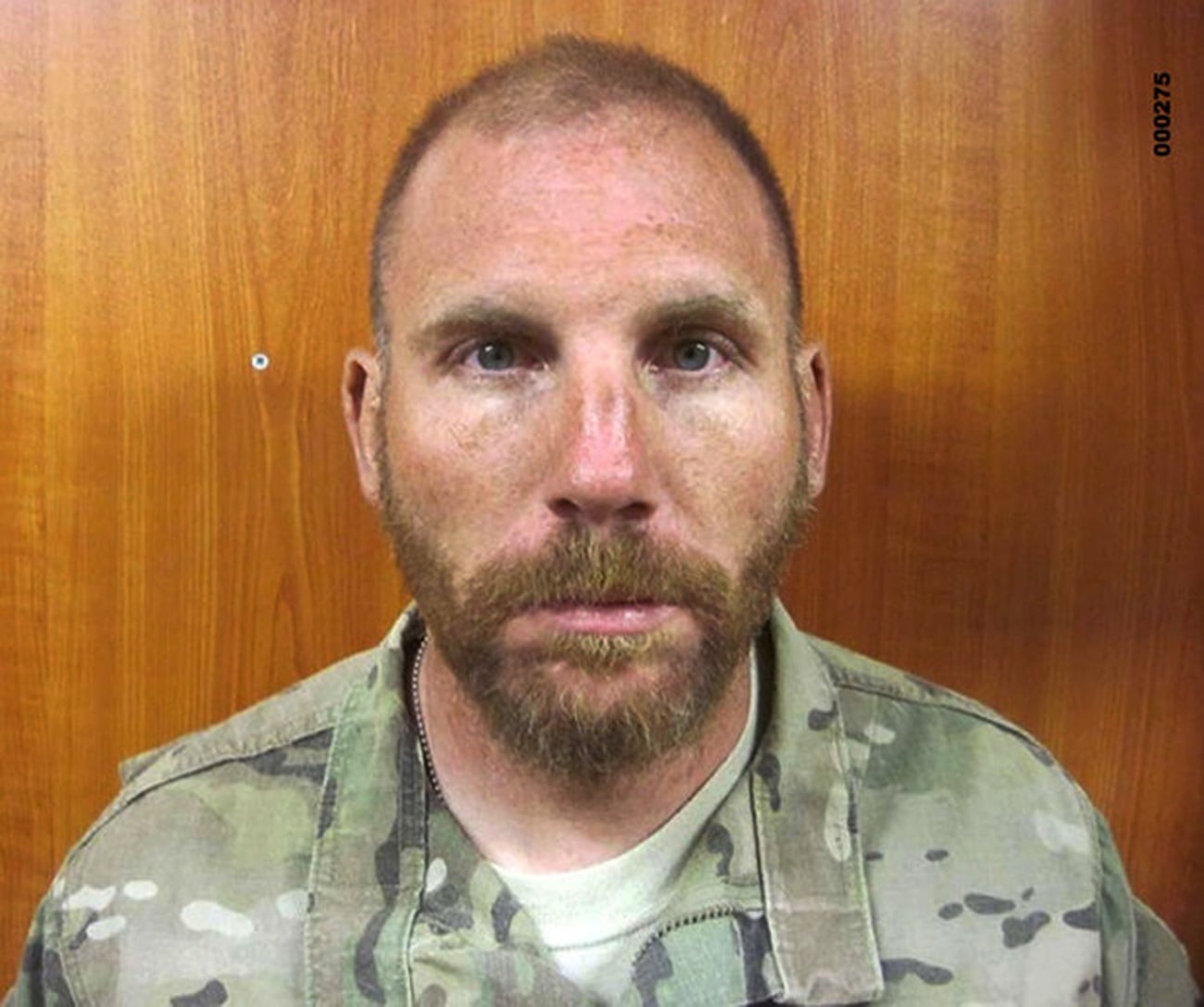WASHINGTON – While celebrating recent pardons of military service members either convicted of or charged with war crimes, the nonprofit military justice advocacy group United American Patriots announced that the next individual they’ll support – Army Staff Sgt. Robert Bales.
Bales is currently serving a life sentence without parole in the military prison at Fort Leavenworth, Kansas after he pleaded guilty to killing 16 Afghans, while on deployment in the Panjwai district, Kandahar province, Afghanistan on March 11, 2012. The act has been called one of the worst atrocities of the war.
On that night, Bales left his forward operating base alone and killed four Afghans, including a 3-year-old girl, he told a reporter in 2015. He returned to his FOB for more ammunition and left again to kill 12 more people in another nearby village. The victims were men, women and mostly children.
RELATED

But both UAP CEO David Gurfein and Bales’ attorney, John N. Maher, told Army Times that though the incident was horrific, they are involved in the case because they believe that Bales was denied his constitutional rights.
Gurfein and UAP have argued that larger elements of military justice are preventing troops from getting a fair trial.
“What we see time and again at United American Patriots, is the that presumption of innocence gets thrown out. We see unlawful command influence. We see prosecutorial misconduct. We see the investigators abusing their positions.”
The Wednesday night event held at the Rayburn House Office Building on Capitol Hill, was held to thank members of the Congressional “Justice for Warriors” caucus and members of the UAP group who had recently supported cases such as those of Army 1st Lt. Clint Lorance, Maj. Matt Golsteyn, Sgt. Derrick Miller and U.S. Navy SEAL Eddie Gallagher.
Maher represents Lorance and Bales.
“I don’t know if Staff Sgt. Bales is guilty or not,” Maher said. “But was I can say is whether or not Bob Bales had a constitutional trial.”

Maher filed a civil lawsuit challenging actions taken by military prosecutors and a judge in federal court in June. Federal prosecutors have denied his assertions and his response is due in January.
Lorance, Golsteyn and Gallagher recently received clemency from President Donald Trump. Lorance had been serving a 20-year sentence on second-degree murder charges for ordering his troops to fire on men near their patrol in Afghanistan in July 2012.
Golsteyn faced a murder trial next year for killing an alleged Taliban bombmaker during his 2010 Afghanistan deployment. Gallagher had been acquitted at trial earlier this year on most of the charges related to allegations that he stabbed a wounded ISIS fighter to death. But he received clemency for the guilty charge that stemmed from him posing with the corpse.
Miller had served eight years of a life sentence that was later reduced to 20 years. He was paroled earlier this year. He had been convicted of the murder of an Afghan man during a battlefield interrogation.
Both Miller and Lorance have advocated for the review of other military justice cases they say resulted in similar rights denials.
Maher claims in the lawsuit that Bales suffered from psychosis connected to his taking the anti-malarial drug mefloquine, which has been shown in some cases to cause mental health problems and hallucinations.
In an interview with GQ magazine in 2015, Bales admitted he had been using steroids at the time of the shootings and on the night his rampage he had drank six or seven alcoholic drinks and took handful of sleeping pills.
But, Maher said, that along with Bales’ PTSD and TBI were not shared with the sentencing jury.
That throws into question Bales’ sanity at the time of the killings and whether he was fit to stand trial when he pleaded guilty to avoid a death penalty the following year.
He also alleges in the lawsuit that military prosecutors flew known Taliban bombmakers into the United States under false aliases to testify as aggravating witnesses in Bales’ sentencing but characterized them as simple farmers, not disclosing that to the defense that some had been linked through DNA and fingerprint evidence to Improvised Explosive Devices used against U.S. troops in Afghanistan.
If successful, the lawsuit could result in a new trial. But some similar issues were raised in the criminal appeal that was not taken up by the U.S. Supreme Court in 2017.
Todd South has written about crime, courts, government and the military for multiple publications since 2004 and was named a 2014 Pulitzer finalist for a co-written project on witness intimidation. Todd is a Marine veteran of the Iraq War.




